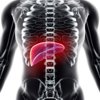Fritextsökning
Artiklar per år
Innehållstyper
-

Uppgift: Sanofi planerar avknoppning av sina receptfria läkemedel
Den franska läkemedelsjätten Sanofi uppges ha bett ett antal banker att pitcha för att delta i att hantera företagets planerade avknoppning av sin OTC-verksamhet, enligt källor till Bloomberg News.
-

Nocebo – the evil twin that makes you feel worse
The placebo effect is well known in healthcare, but not so its opposite: nocebo. “The effect is small, but it can have major repercussions,” says Uppsala researcher Charlotte Blease, co-author of a book on the phenomenon.
-

Ny chefredaktör på Läkartidningen
Åsa Uhlin har utsetts till ny chefredaktör på Läkartidningen efter avgående Pär Sandell.
-

Första behandlingen mot vanlig leversjukdom godkänd i USA
Efter många år av utveckling har nu för första gången en behandling mot fettlever med leverskada godkänts av det amerikanska läkemedelsverket FDA.
-

Marie Gårdmark: ”Interchangeable biological medicines – soon in a pharmacy near you?”
”Generic competition is an effective way to push down drug prices, but it has not worked equally well for biosimilars. Biosimilars require more time to gain market share compared to generics, and new biosimilars do not always lead to lower prices” writes
-

“Don’t postpone the transition to IVDR”
Operators who have not yet started to adapt to the requirements of the new EU IVDR regulation are running out of excuses. This is the opinion of Helena Dzojic, Head of Unit at the Swedish Medical Products Agency, who continues to persistently spread her
-

Raised millions to develop a treatment for ´butterfly children´
Fragile as a butterfly’s wing – that’s how people living with Epidermolysis Bullosa are usually described. The Lund-based company Xinnate recently raised SEK 100 million in a new share issue to finance the development of a treatment they hope will give
-

Danska life science-industrin står för rekordhög export
Den danska exporten av life science-produkter har ökat explosionsartat, med en tillväxt på 227 procent sedan 2008 och utgjorde 2023 så mycket som 19 procent av landets totala varuexport.
-

Anna Törner: “My quantified life”
“The expression ‘you can’t see the forest for the trees’ feels newly relevant in the context of wearables. One can easily get caught up in the idea that the more we measure, the more we know,” Anna Törner writes in a column.
-

Failed to read the fine print – lost his life’s work
A celebrated CEO and co-founder of a pioneering lab company one moment – the next, fired, kicked out and written out of the company’s history. This is the story of a Swedish entrepreneur who was going to raise US venture capital to strengthen his company but lost his life’s work instead.
-

Ingrid Lönnstedt: Demystification of the power of a scientific study
”You surely do realize that even the smallest changes in study assumptions may influence the estimated sample size needed. And how is it even possible to guess the magnitude of the treatment effect before performing the study?” writes Ingrid Lönnstedt in a column.
-

Major investment in women’s health – for a more equal healthcare system
”The regional differences need to decrease and the long-term supply of midwives and other professions needs to be secured,” write Acko Ankarberg Johansson and Désirée Pethrus (both Christian Democrats), in an opinion article.
-

A new special edition and a new event in Copenhagen – This is happening at Life Science Sweden 2024
The new year brings new features for the readers of Life Science Sweden.
-

Ingrid Lönnstedt: What does the p-value mean?
The smaller the better, and preferably smaller than 0.05. A p-value smaller than 5% means that the treatment effect is statistically significant at 5% significance level. But what does that mean? Read Ingrid Lönnstedt´s column to learn more.
-

Anna Törner: The clinical trial – Periscope to reality
What happens to the patients in the clinical trial is not very interesting, writes Anna Törner in a column.
-

Larm om vaccinbrist efter utbrott av difteri i Västafrika
Ett allvarligt utbrott av difteri har drabbat Västafrika. Nu varnar Läkare utan gränser för brist på läkemedel och vaccin mot sjukdomen.
-

The Swedish Academy of Sciences: “We have too many researchers”
Sweden does not need more researchers, but it does need better ones. According to the Royal Swedish Academy of Sciences, funding should be distributed to favour excellence.
-

Founder of Bioarctic, Lars Lannfelt, is honoured: “I want to create something for the future”
It´s like a scientist’s dream: to be the world’s first with a drug that genuinely affects one of our major diseases. Lars Lannfelt and his company Bioarctic have achieved just that, and they are thus making a significant contribution to the history of Swedish medicine. He is now being awarded the Research!Sweden Award 2023.
-

High-tech companies are increasingly focusing on health
Tech companies have been taking an interest in healthcare for many years, and this interest seems to be increasing. “It’s not a sudden shift in trend, it’s more about them advancing their positions,” says Anna Lefevre Skjöldebrand, CEO of Swedish Medtech.
-

“You discover one thing – and then 10 new questions arise”
COVID-19, diabetes, heart disease, and the impact of dog ownership on humans are just some of multitasker Tove Fall’s areas of research. However, her current focus is on her next field: the role of gut flora in human health.
-

The physician at the tech giant: “Observations in the emergency room made my mind up”
When Nasim Farrokhnia was in third grade at school in Tehran, the capital of Iran, her father gave her a book about Marie Curie, which soon became her favourite book. Perhaps her interest in science was born there and then, as science and new technology
-

Study names with an attitude – more important than you might think
Ironman, T-rex, Star-Trek. Popcorn, Proper, Scout. Nope, these are neither fantasy films nor dog names. They’re the names of ongoing cancer studies in Sweden.
-

Rickard Sandberg on this year’s Nobel Prize in Medicine: ”A key discovery”
The discovery that paved the way for the development of todays mRNA vaccines is the basis for this year’s Nobel Prize in Physiology or Medicine.
-

The first drugs to slow down Alzheimer’s – but what does it mean for patients?
New treatments for early Alzheimer’s are bringing hope to thousands of patients and their families. The question is, who will get the treatment, how will the right patients be found in time, and will the healthcare system’s resources be sufficient? Life